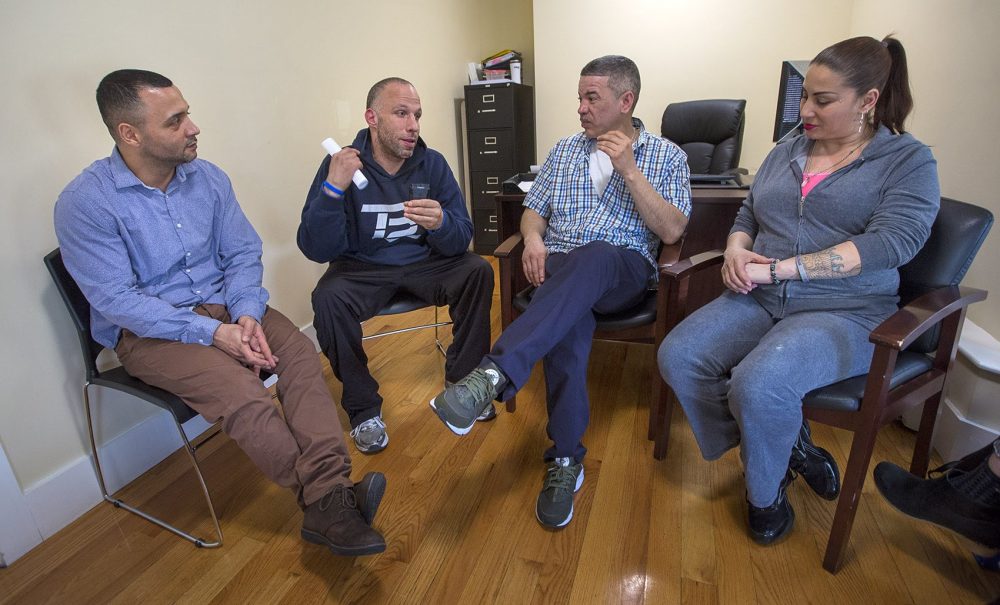Latinos Are Hit Especially Hard By The Opioid Crisis In Mass. But Why?

From left to right: Felito Diaz, Julio Cesar Santiago, Richard Lopez and Irma Bermudez speak at Casa Esperanza, a collection of day treatment, residential programs and transitional housing in Roxbury. Photo by Jesse Costa for WBUR
The tall, gangly man twists a cone of paper in his hands as stories from nearly 30 years of addiction pour out: the robbery that landed him in prison at 17; never getting his GED; going through the horrors of detox, maybe 40 times, including this latest, which he finished two weeks ago. He’s now in a residential unit for at least 30 days.
“I’m a serious addict,” says Julio Cesar Santiago, 44. “I still have dreams where I’m about to use drugs, and I have to wake up and get on my knees and pray, ‘let God take this away from me,’ because I don’t want to go back. I know that if I go back out there, I’m done.”
Santiago, who is Puerto Rican, has reason to worry. Near-real-time data on the opioid epidemic in Massachusetts, produced by the Baker administration, shows the overdose death rate for Latinos has doubled in three years, growing at twice the rate of any other racial group.
These numbers suggest the opioid crisis is hitting Latinos especially hard in Massachusetts. State officials say they don’t know why. But interviews with current and former drug users, addiction treatment providers and physicians reveal a range of problems that put Latinos at greater risk of an overdose and death.
